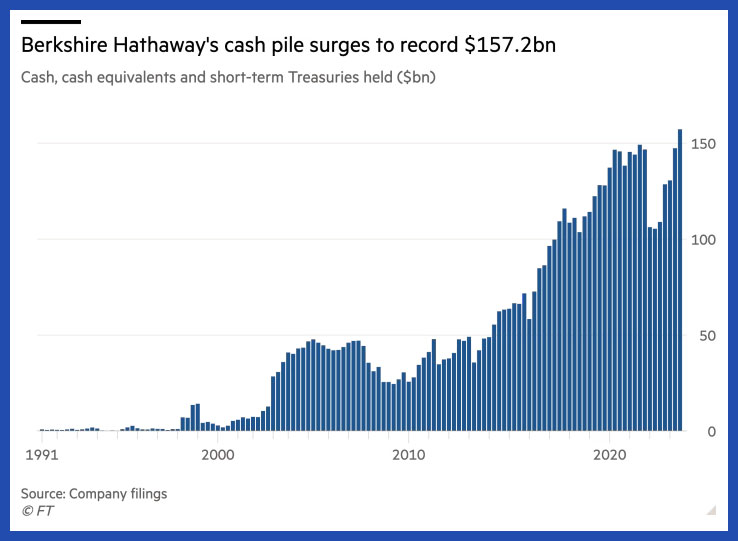Making sense of the markets this week: November 12, 2023
Disney’s winning, climate change and fossil fuel profits are tough to ignore, Buffett & Munger’s gift from God, and—boring—Canadian financials count profits.
Advertisement
Disney’s winning, climate change and fossil fuel profits are tough to ignore, Buffett & Munger’s gift from God, and—boring—Canadian financials count profits.

Kyle Prevost, creator of 4 Steps to a Worry-Free Retirement, Canada’s DIY retirement planning course, shares financial headlines and offers context for Canadian investors.
With 88% of companies in the S&P 500 having now reported results, nearly 9 in 10 have surpassed earnings estimates. Consumers continue to feel worse about the economy, and companies just continue to make more money. It’s quite an odd time to try to make sense of the markets.
This is what two American companies reported this week. All figures below are in U.S. dollars.
Disney’s outperformance was chiefly due to ESPN+ subscriptions and continued revenue increases at theme parks. Investors appear to be big supporters of CEO Bob Iger’s announcement that Disney will “aggressively manage” its costs and will now be targeting $7.5 billion in cost reductions (up from a $5.5 billion target earlier in the year). Shares were up 4% in after-hours trading on Wednesday.
“As we look forward, there are four key building opportunities that will be central to our success: achieving significant and sustained profitability in our streaming business, building ESPN into the preeminent digital sports platform, improving the output and economics of our film studios, and turbocharging growth in our parks and experiences business.”
— Disney CEO Bob Iger
Uber, on the other hand, had a more subdued day. The earnings miss was contextualized by CEO Dara Khosrowshahi, when he pointed out that gross bookings for people-moving mobility were up 31% year over year (YOY), while UberEats gross bookings were up 18% YOY. The markets appeared to agree with Khosrowshahi’s spin, as shares were up 3% on Tuesday, despite the earnings news.
Despite a United Nations report stating that Canadian fossil fuels should be kept in the ground, the sector continued right on pumping out profits this quarter.
Here’s what came out of the earnings report.
While accounting changes at Keyera resulted in an earnings-per-share miss, shareholders appeared to take the news in stride. Share prices were down less than 1% on Wednesday. Management highlighted the Pipestone expansion being on track and to be completed in the next two months, as well as a recent credit upgrade. The company was in great shape going forward. With net debt to adjusted EBITDA (earnings before interest, taxes, depreciation and amortization) at 2.5 times, the company is on the conservative side of its 2.5- to 3-times target range.
TC Energy was up nearly 1% on the day after positive earnings news and the announcement that the new Coastal GasLink was completed ahead of the year-end target. Management also stated that it is taking steps to strengthen the company’s balance sheet, including selling off $5.3 billion in asset sales that will be used to pay down debt.
Despite total barrels of oil produced falling from 724,100 to 690,500 in last year’s third quarter, Suncor outperformed expectations and shares rose 3.7% on Thursday. Investors were forgiving in the decrease of adjusted earnings due to lower crude oil prices and increased royalties.
The company attributed the decrease in adjusted earnings to lower crude prices and a weaker business environment, as well as increased royalties and decreased sales volumes due to international asset divestments.
Suncor’s total upstream production was 690,500 barrels of oil equivalent per day, down from 724,100 boe/d (barrels of oil equivalent per day) in the same period last year.
For more, check out our article about investing in Suncor on MillionDollarJourney.ca.
The world of Canadian Financials was pretty quiet this week, as the big companies that reported earnings didn’t generate a lot of movement in the markets.
Here’s what came out of the earnings reports here in Canada from some major financial players.
Manulife shares were largely flat on Wednesday despite the positive earnings news. The earnings outperformance was mostly attributed to business growth in Asia, where core earnings were up 33% (versus 4% in Canada and a 2% decrease in the U.S.A.).
Great West Lifeco followed suit on Thursday, with results largely following expectations. Shares were up 1.84% on the day.
Brookfield is a massive holding company with investments in infrastructure and real estate all over the world. It can be hard to judge its earnings reports due to its different reporting style and unique corporate structure. That said, shareholders clearly weren’t impressed, as the stock was down 3.2% from where it was on Monday before earnings were announced.
That said, BAM was quick to highlight the fact that thanks to strong fundraising and a conservative investment style, it’s sitting on $120 billion of deployable capital that is just waiting for the right opportunity.
Berkshire Hathaway Inc. (BRK.A, BRK.B/NYSE) announced quarterly earnings last Saturday, and in a somewhat confusing statement, highlighted both the company’s first quarterly loss in a year, but also very positive insurance operating profits. (All numbers in this section are in U.S. currency.)
For those Canadian investors who are a little foggy on how Buffett & Co. actually make its money, there’s the underlying insurance business (Buffett’s original golden goose). Also, there are all the companies into which Buffett invested those original insurance profits.
For the last quarter, profits from operations showed a 40% increase, and cash on hand for Berkshire has ballooned to a noteworthy $157 billion. Buffett has been using some of this cash to buy up 5% treasury yields.

Now, the investments side of Berkshire has not fared quite as well. Most of the investment loss (more than $24 billion) came from a decline in Apple’s share price and the reduction of the BNSF railway earnings.
Already this week, though, Berkshire’s stock portfolio began to look better, with Occidental Petroleum (OXY/NYSE) crushing earnings reports. (Buffett now owns more than a quarter of OXY.) Earnings per share came in at $1.18 (versus $0.86 predicted) and revenues were $7.40 billion (versus (6.96 billion predicted).
Charlie Munger (the Robin to Buffett’s Batman), was resoundingly positive on some of the company’s past moves this week, saying that past Japanese investments were, “a gift from God.” He added, “If you’re as smart as Warren Buffett, maybe two, three times a century, you had an idea like that. […] It was like having God just opening a chest and just pouring money into it.”
Berkshire Class A shares are up more than 12% this year, despite having fallen slightly from their late September peak. Canadians can get exposure to Berkshire through a Canadian Depositary Receipt (CPR) on the NEO exchange (BRK, CAD-hedged).
Share this article Share on Facebook Share on Twitter Share on Linkedin Share on Reddit Share on Email
I have a question regarding RDSP. Would someone who has a total knee replacement quality for a RDSP, at least for a time when they are no longer able to work folowing surgery and rehabilitation, as in the case if Raquel? I am not sure who qualifies for one because as we get older and the arthritis kicks in, there could be a lot of us seniors claiming disability.
Due to the large volume of comments we receive, we regret that we are unable to respond directly to each one. We invite you to email your question to [email protected], where it will be considered for a future response by one of our expert columnists. For personal advice, we suggest consulting with your financial institution or a qualified advisor.